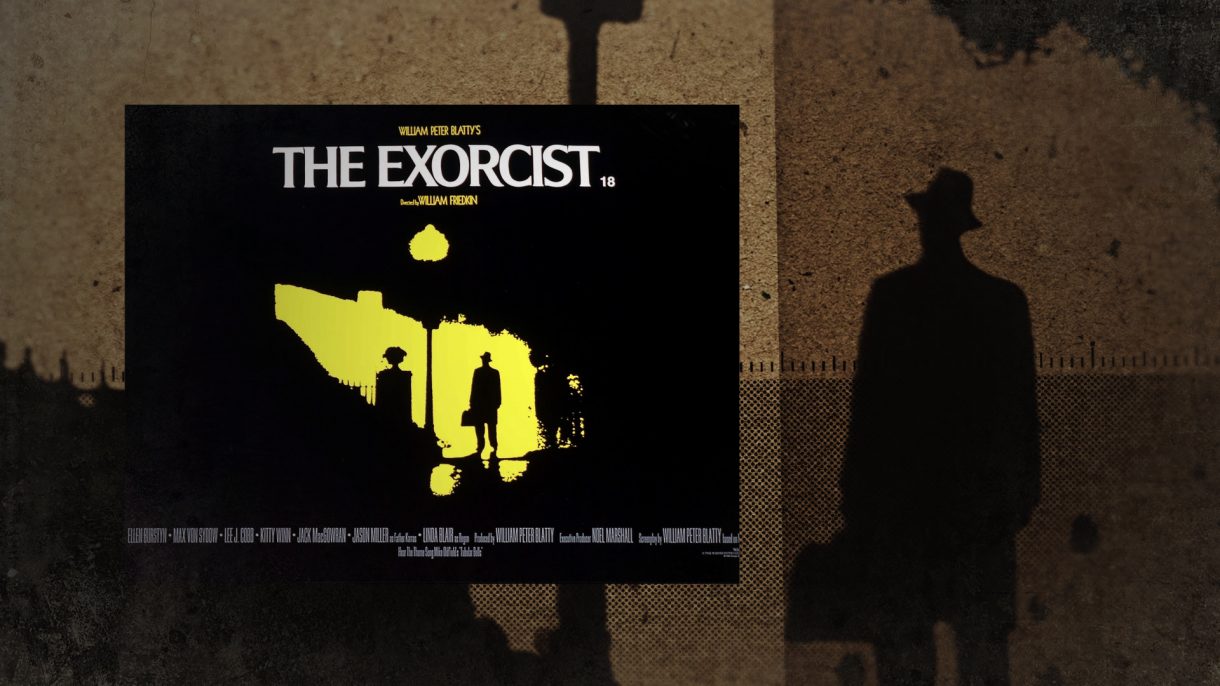Dir: Francesco Zippel | US-ITALY | 107 MINS | DOCUMENTARY | with William Friedkin, Francis Ford Coppola, Quentin Tarantino, Willem Dafoe, Wes Anderson, Matthew McConaughey, Ellen Burstyn, Michael Shannon, Juno Temple


Dir: Francesco Zippel | US-ITALY | 107 MINS | DOCUMENTARY | with William Friedkin, Francis Ford Coppola, Quentin Tarantino, Willem Dafoe, Wes Anderson, Matthew McConaughey, Ellen Burstyn, Michael Shannon, Juno Temple
Wlliam Friedkin swaggers into the room and grabs a mug of dark coffee: “What interests me is how Hitler took a load of intelligent people down, whereas Jesus lifted them up”: He concludes “it’s a struggle for every human being to overcome their dark side”.
William Friedkin, who is sadly no longer with us, must be one of the most quotable directors. Perfectly formed truisms just flood out of him in this amiable portrait from Francesco Zippel. Looking like an amiable astute tortoise with his smooth features and perfectly coiffed hair, he can be vociferous. When filming The French Connection he apparently shouted at his cinematographer: “What you’ve shown me so far sucks”. The two went on to make an all time classic that flopped at the box office. As Michael Shannon puts it: “Billy forces you to the dark place- he’s aware when something is phoney – he wants 200% because he’s giving 200%. Unlike Kubrick, he’s not looking for perfection, he’s looking for spontaneity.
Born in 1935 of Ukrainian Jewish parents who immigrated to the US, Friedkin did not realise the family was poor because everyone around them in their Chicago tenement was in the same boat. His father was a semi-professional soft ball player, his mother a warm and giving woman who he adored Young Friedkin started in the mail room of a TV station and worked his way up – in common with many other directors of the 1960s, but seeing Citizen Kane was the turning point that inspired him with the power of film and then he went on to Hollywood and was completely devolved of that notion. The rest is history.
Built around Friedkin’s pragmatic and pithy commentary Francesco Zippel’s doc well-structured documentary focuses on each of his films, intercut with commentary from the relevant talking heads and collaborators who discuss the way they worked with him. Friedkin is articulately frank and open about his motivations, which are interesting in themselves. A tinkly occasional score accompanies some extraordinary revelations: his film The people vs Paul Crump actually saved the man’s life. On the whole his films have a cinema vérité quality to them that is rooted in his documentary style, especially The French Connection that transports you ‘there in that era’ but the film still feels incredibly fresh and – in the view of Edgar Wright – more so than thrillers that are being made today. Infact FC is almost 95% based on truth, along with Bug and Killer Joe. Friedkin liked facts and percentages rather than ephemera.
Yet while filming he gets lost in the moment: Gina Gershon calls him a method director as he literally becomes part of the atmosphere during a shoot, making a suggestion and seeing what the actor does with it.
Wes Anderson likes his horror fare because the narrative pulls you in keeping you close to the characters are engaging because in Friedkin movies they’re built in reality. Casting his films to perfection avoids too many takes. Infact he’s very much a one take guy, a cording to Juno Temple who applauds the complexity of his female characters, who are sometimes even more complicated that his male characters. And he casts his films to perfection Max von Sydow was perfect in the Exorcist Ellen Burstyn knew the territory as a lapsed Catholic herself. “He taught me how to be real in the fiction” she says.
We are treated to archive footage of an interview with Fritz Lang where the German emigre complains that his films made in Germany are worthless but al least he got to meet Goebels. Lang only appreciated the films he made in Hollywood. As a director you need ambition, luck and the Grace of God, and particularly the latter. But in the end “success has many fathers, but failure is an orphan”
In his lavishly hilltop home we are shown his drawings by Sergei Eisenstein before he discusses his film Cruising which was made inside the gay bars of New York but wasn’t a hit with the gay community on account of exposing their haunts in their raw reality. “I loved it as an exotic background for a murder mystery. But i don’t approach cinema from a political standpoint. Infact I don’t trust politics or politicians”.
He wanted to cast unknown actors in To Live and Die in LA (1985) and so low key stage actor Willem Defoe became electric casting opposite with William Petersen. In accordance with his documentary research credentials the film also involved some real counterfeiters, whom Friedkin got to know.
Friedkin never attended film school and doesn’t consider himself an artist but admires Antonioni and a Fellini and claims Kathryn Bigelow to be the best woman filmmaker working today.
“Acting and filmmaking are professions. It’s a job. Out of this work there can come art – but it’s rare. when you start to believe in yourself as a artist – instead of telling a story with the utmost professionalism – that’s the end of a career. Antonioni and Fellini’s films are full of mood and texture”. Friedkin’s only regret was not having been able to transcend reality in his films. Sadly time is no longer on his side. MT
TRIBUTE TO WILLIAM FRIEDKIN 1935-2023| VENICE FILM FESTIVAL | CLASSICS | 31 SEPTEMBER 2018